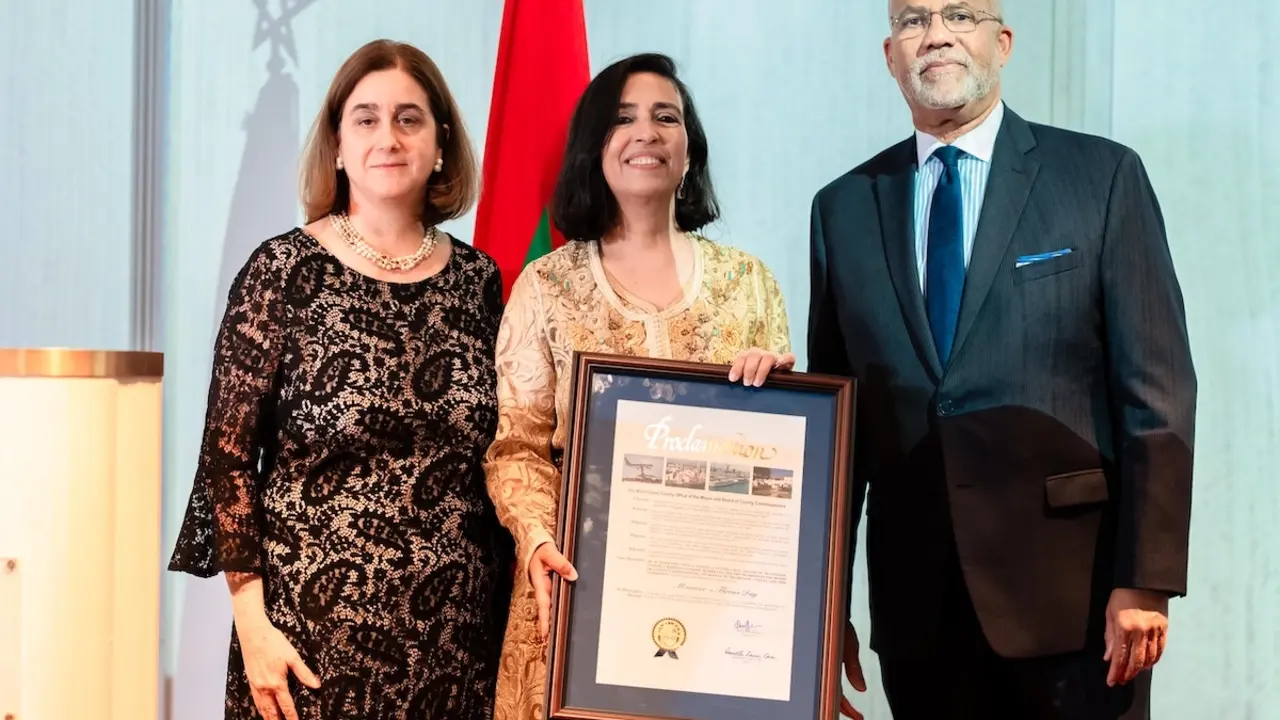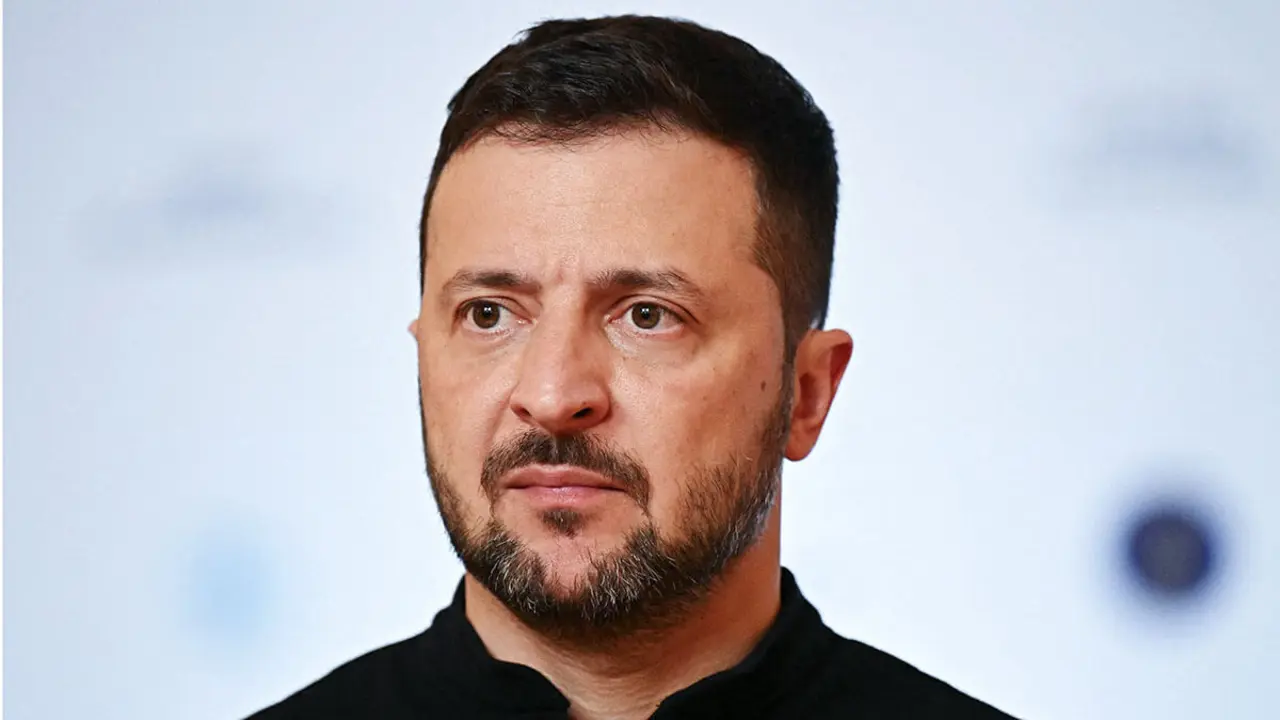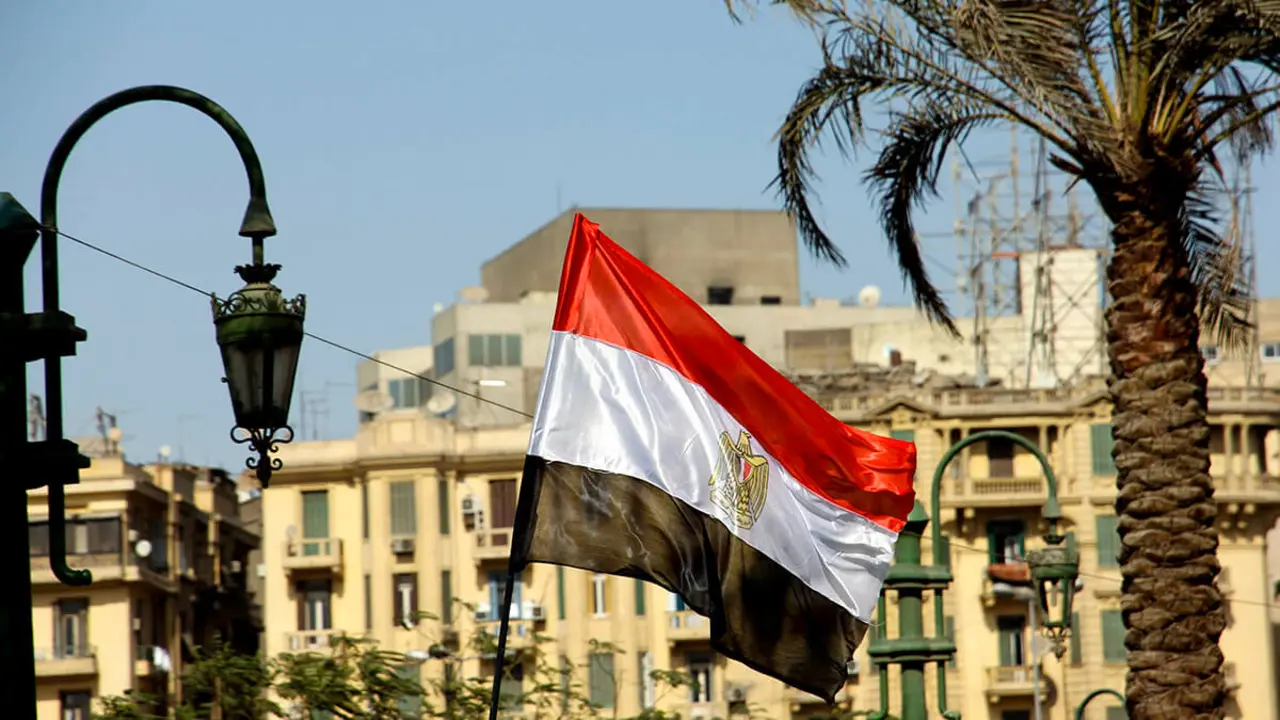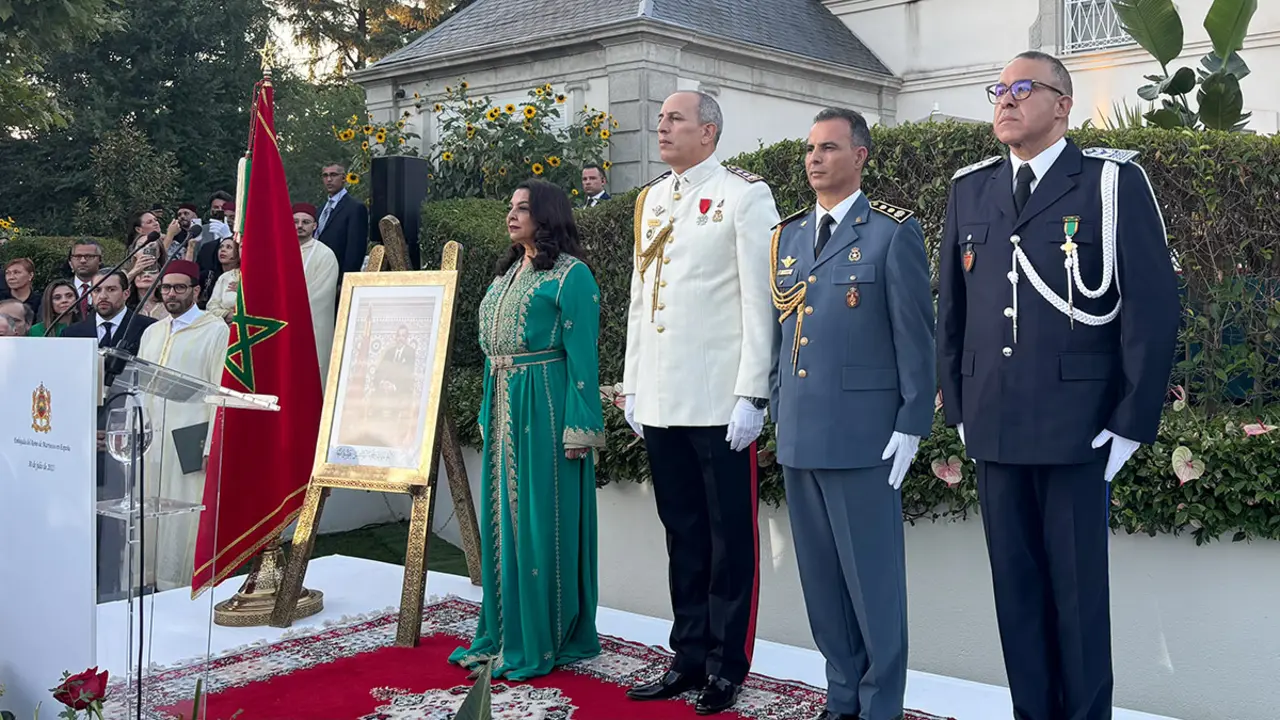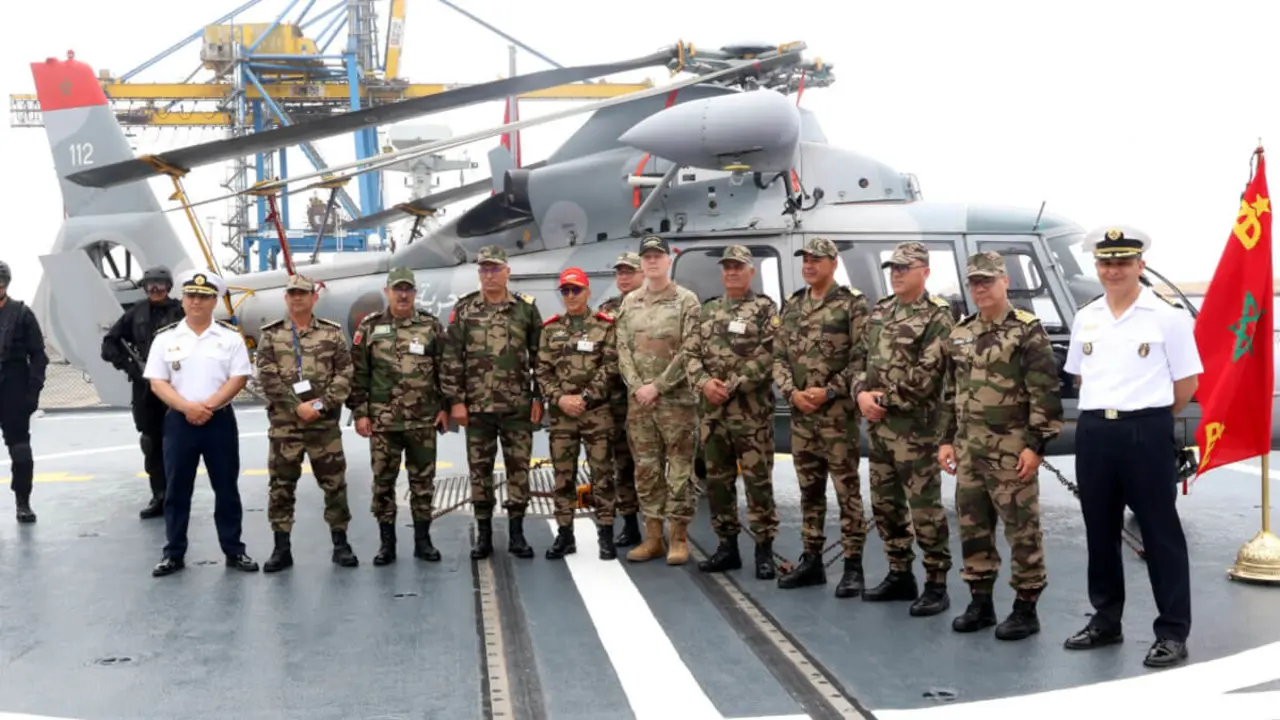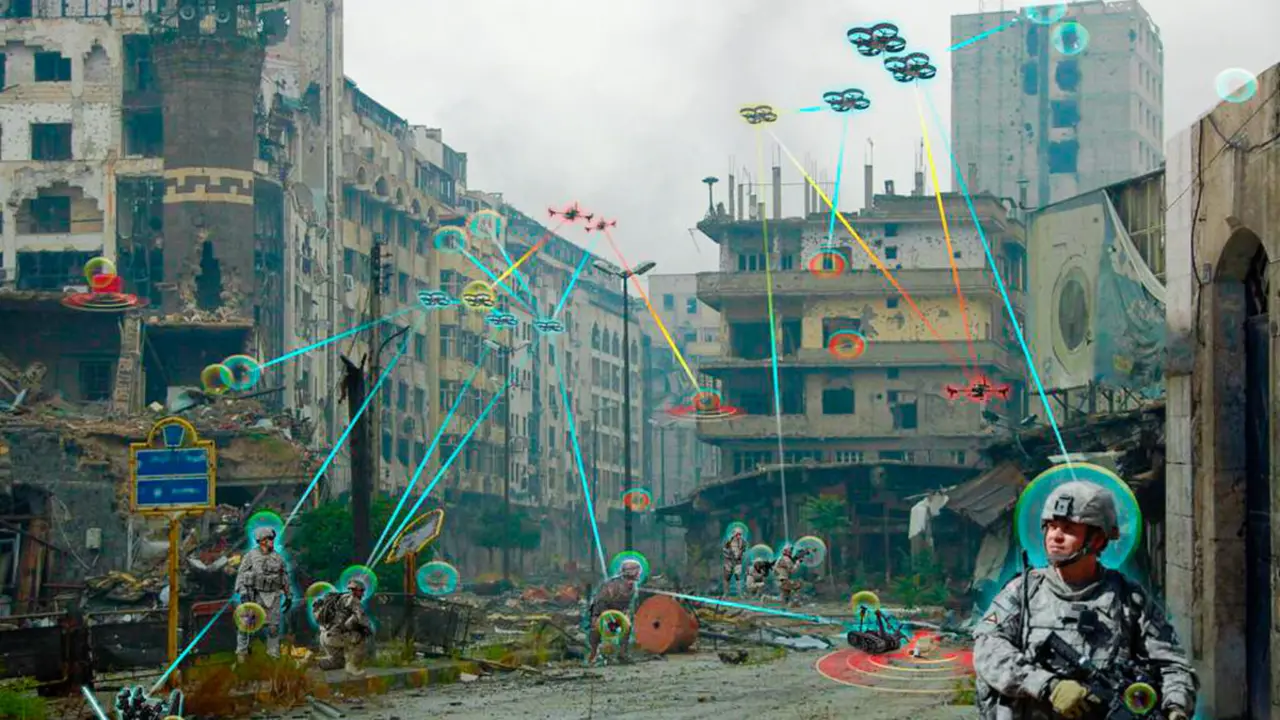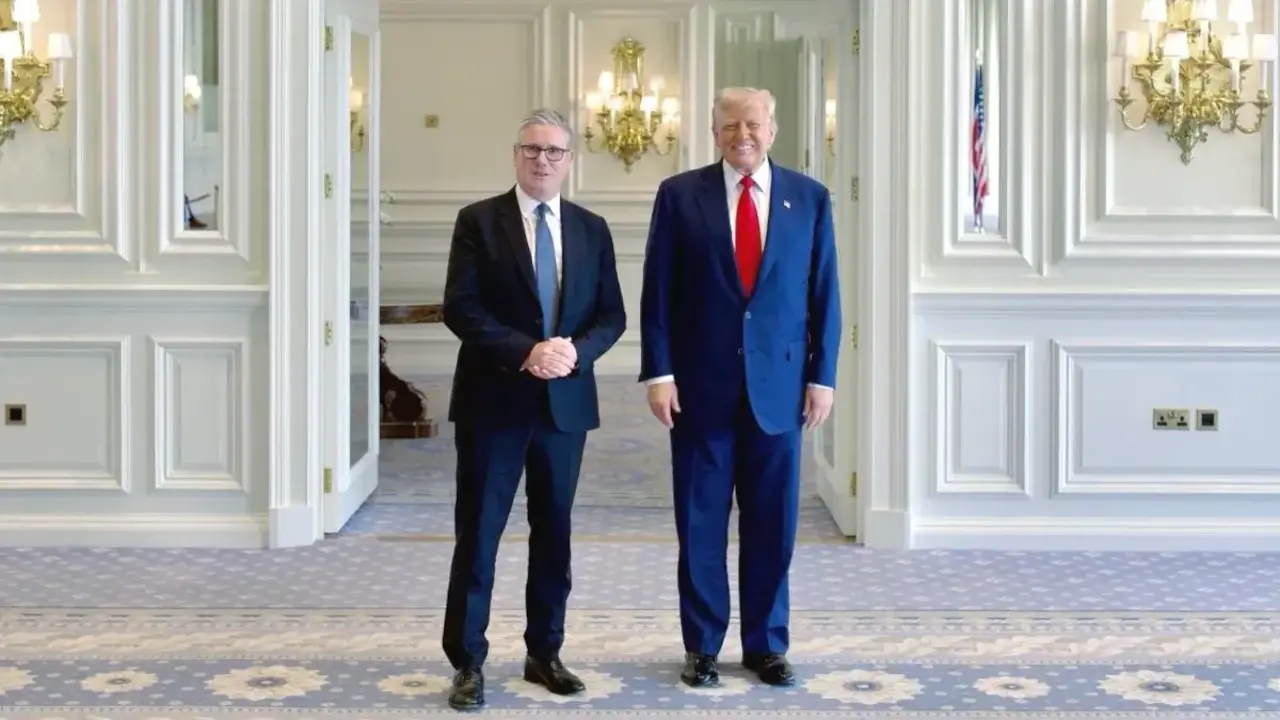The Libyan conflicto: a danger for Europe and Spain
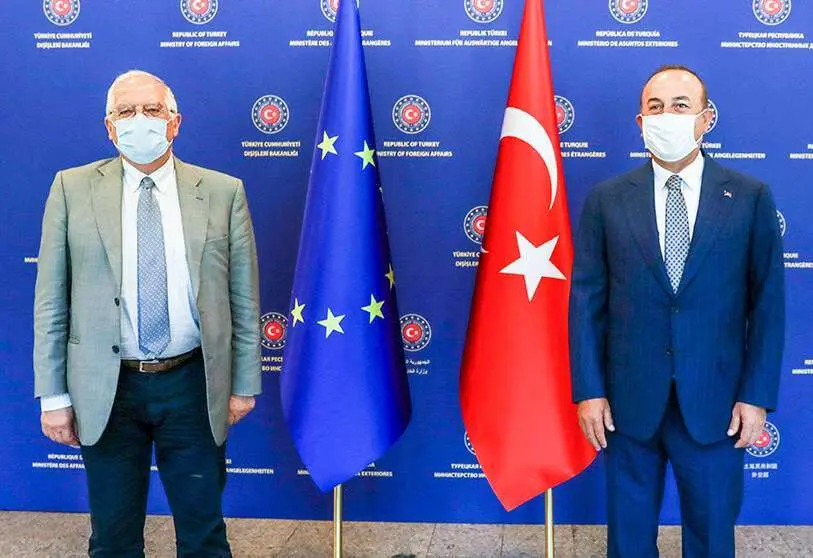
The current situation in the African country is causing great tension between Ankara and Brussels owing to the already existing confrontation between Turkey and France, which support different sides in the armed conflicto. These tensions have been increasing since the French country recently reported that one of its ships, under the mandate of NATO, was threatened by Turkish warships on the Libyan coast.
The current Libyan conflicto was born out of the political instability caused by the power vacuum following the assassination of its former leader and dictator, Muamar on Gadafi (hereinafter Gadafi), in October 2011. Following his overthrow, supported by countries such as Spain, the United Kingdom and Denmark, the Libyan opposition and other political forces proved incapable of forming a stable government and restructuring the public coffers, solving the security problems the country was experiencing or creating a legal framework that would serve to guarantee the reconciliation of the country's antagonistic forces.
This internal division of the country worsened in 2014 and resulted in the outbreak of the second Libyan civil war, which confronted those groups that had previously united to prevent the continuation of Gadafi in power. Without a common enemy, the differences between the factions afloraron. General Khalifa Haftar (hereinafter Haftar) attempted to dissuade the unilaterally extended stay of the Muslim Brothers in power and launched, in parallel and together with the support of the Libyan National Army (LNA), Operation Dignity with fin to eliminate the presence of Islamist and terrorist groups loyal to the government. Soon other armed military groups joined Haftar's cause and the Libyan Dawn coalition was born.
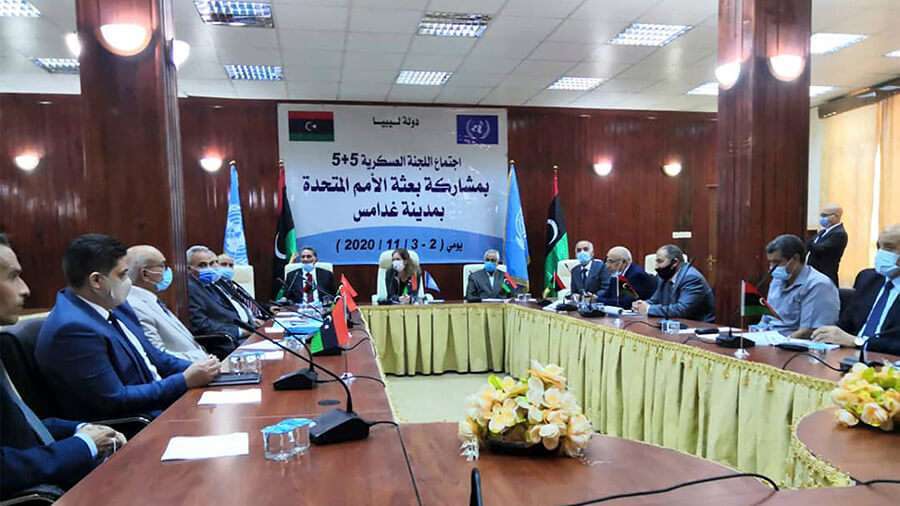
In June 2014 elections to the Libyan parliament were held and although the result favoured Libyan Dawn, the members of the General Congress refused to relinquish their posts. The Islamic State (hereinafter ISIS) took advantage of this political gap to mobilise Syrian and Iraqi forces in Libya. Foreseeing the disastrous outcome and with more will than success, the United Nations (UN) launched the United Nations Support Mission in Libya (UNSMIL) and set up the National Accord Government (NAG), a transitional executive initially made up of delegates from both sides. The GNA was dismissed by both the General Congress as well as by the House of Representatives. Despite this, it remains the only Libyan government recognised by the UN. The reality is that the power struggle between the ANG, Libyan Dawn and ISIS continues and plunges the Libyan state into a deep crisis aggravated by the territorial division. At present Libya is a lawless state incapable of guaranteeing the security of its citizens, favouring the interference of third countries and becoming in turn a source of opportunities for terrorism and organised crime.
In 2017 the American television channel CNN published a research documentary in which the sale of people on Libyan territory was repeatedly shown with fines of slavery or prostitution, depending on the gender. The content triggered international alarm on both the African and European continents: Nigerian President Mahamadou Issoufu demanded an investigation by the International Court of Justice, and French President Emmanuel Macron called an emergency meeting of the United Nations Security Council.
Despite the evidence videográfica and confirmación from agencies like the International Organization for Migration (IOM), the response of Libyan leaders was to discredit the accusations. Tareq Shanpur - Director General of the Maritime Security Department of the Libyan Ministry of Interior - afirmó that "The video of the slave trade in Libya broadcast by CNN is fake and a Hollywood film. Libya is a victim of illegal immigration and [...] is subject to a systematic campaign by foreign countries and human rights organizations. ...] Some European countries are working to harm Libya with the help of Libyan traitors.
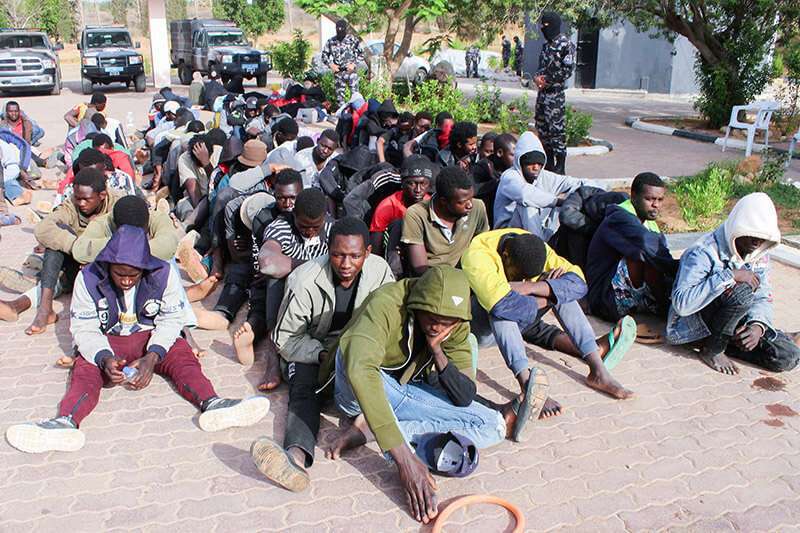
The Director General's refusal is the consequence of the inability of the ANG to effectively exercise its power over the whole of Libyan territory and underlines a reality that persists to this day: Libya is a failed state and as such, not only does it facilitate interference by third countries, but also by mercenary groups and mafias. It is precisely the latter that promote the tráfico of people. This is the case of the port of Zawiya, where the most important oil refinería in western Libya is located. It is precisely the president of the security department of this refinería - Mohammed Khushlaf, also known as Al Qasseb - who controls the port and who allows people like Abdurahman Al Milad Aka Bija - head of the Coast Guard in Zawiya - to dedicate themselves to the tráfico of people both for fines slavery and prostitution and for the promotion of illegal immigration to a Europe that is less than 200 nautical miles away. The absence of state entities such as the Libyan National Petroleum Authority (NOC) to control oil sales in Zawiya or the ignored corruption of the Libyan Coast Guard are examples, once again, of a broken Libya.
Libya has always had a high rate of immigration. Before the fall of Gadafi, many migrants settled in the Libyan country. However, an anarchic and destroyed Libya has become a transit area towards Europe. Immigration, especially of refugees, is not a problem in itself. The problem arises when it arrives, promoted by mafias, uncontrolled and illegally. In the face of the outbreak of an conflicto in the Middle East or the Maghreb, Libya could become the most accessible gateway to Europe and cause a migration crisis as happened in 2015.
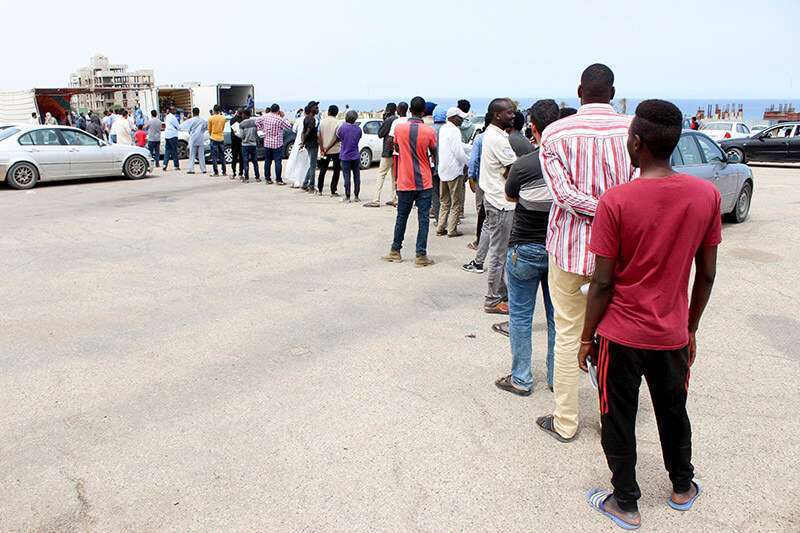
At finales in 2018, Libya was estimated to have crude oil reserves of 48 billion, making it the ninth largest country in the world and the number one in Africa, with 38 per cent of the continent's reserves. Bearing in mind that only 25% of Libyan territory has been explored for hydrocarbons these resources continue to form a very positive scenario in the long term. Approximately 95% of export revenues come from the energy sector, where oil and natural gas dominate. Renewable energies are totally ignored, despite the great potential this country has - especially solar and wind energy.
The great energy wealth of this country is highly attractive to third parties. On the one hand, Europe's dependence on crude oil imports and Libya's proximity to the European continent geográfica make energy transactions cheaper. On the other hand, Libya produces one of the best crude oils in the world; easy to process and low in sulphur.
Spain - through Repsol - is one of the main oil producers in Libya, together with Eni - an Italian company. These two European companies are not the only ones present in Libyan territory, we also find BASF - a German company - and BP - belonging to the United Kingdom - among others. However, for the future, it is highly likely that one of the largest producers will be Turkish Petroleum - after the major assistance Turkey is giving to the GNA in Tripoli - which indicates the importance of support from third countries in defending their own interests.
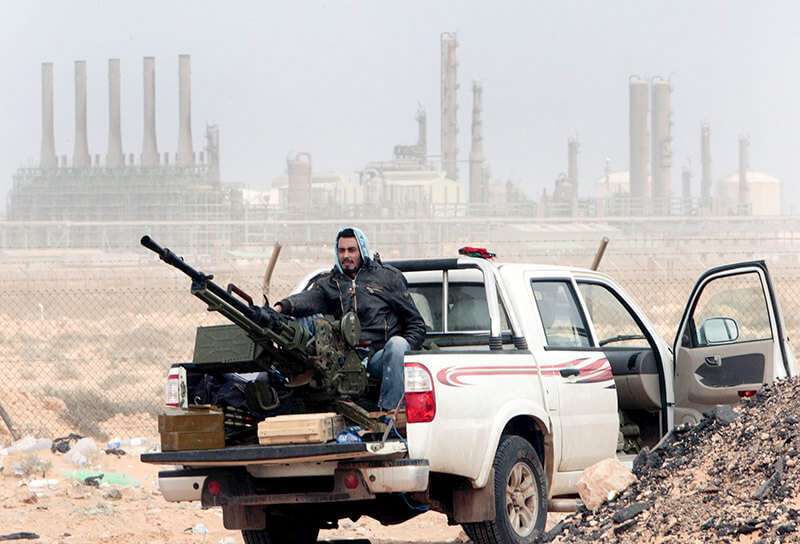
It is difficult to find data beyond 2018, especially current export figures. On 18 January 2020, the NOC announced that the disruptions had cost the country some 800,000 barrels a day or more
100 billion from 2016. This dependence on hydrocarbons is leading the country to high levels of inflación, a depreciation of the local currency and an increase in public debt. The crisis in Libya has had an effect not only on the country, but also on the region and European countries dependent on these resources.
In addition, the recent Coronavirus crisis and the rise of conflicto in Libya point to a rise in oil product prices in 2020-21. Meanwhile, Italy is probably the country most affected by this crisis, followed by Spain, which should be grateful for the energy diversificación pursued since the National Security Strategy (NSS) of 2011. In the medium term and from the energy point of view, Turkey is likely to obtain concessions in Libya. It would therefore not be unheard of for Turkey, once the war is over, to be able to influence Libyan energy policies. In the short term, third countries with interests in the region are also attempting to influence Libya. Russia will continue to use mercenaries to prevent the resumption of energy flujo production, while other producer countries - e.g. United Arab Emirates or Saudi Arabia - will be aware of the situation at benefician. On the other hand, the EU will continue to try to put pressure on the resumption of production to demonstrate its support for the Tripoli government and for its own interests.
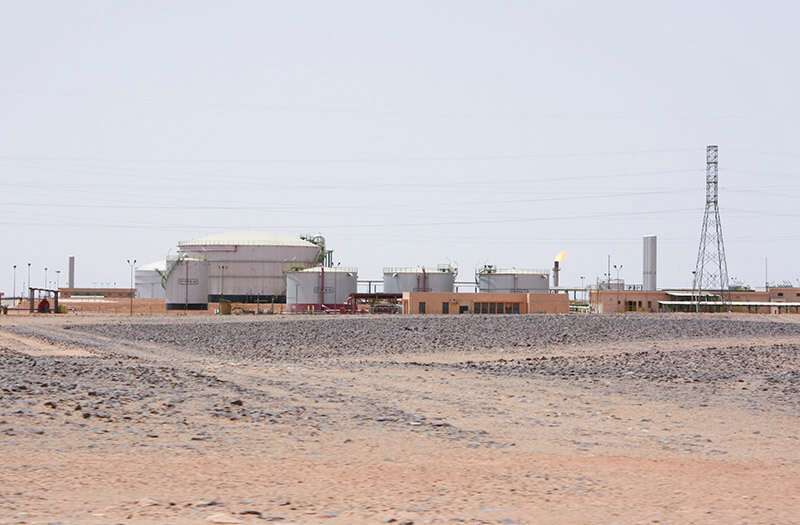
During the revolution in 2011, the jihadist groups salafistas were neither the main initiators nor the main drivers of the uprising. However, they were part of the forces that fought against Gadafi and knew how to take advantage of the power vacuum as an opportunity to take control of the country.
Despite the wide variety of militias present in Libya, Islamic terrorist groups have managed to penetrate and sustain themselves among the population thanks to a series of factors. Firstly, the deterioration of national politics and the lack of economic opportunities have forced many young people to join their filas Another determining factor has been the lack of a national army capable of maintaining the country's security and controlling its borders. The revolution left Libya without an army and with one of the largest reserves of portable air defence systems and conventional weapons. Finally, political instability and lack of security have made Libya an attractive destination for foreign Jihadists where they can interact with high-ranking leaders and move between fronts.
Despite the presence of a broad spectrum of Islamist groups, the main threat to Europe is ISIS. This organisation dominated the city of Sirte from June 2015 until December 2016 when they were expelled. In February 2018, it claimed - through its magazine Amaq - responsibility for an attack on Marshal Haftar's troops. His latest movements suggest that for the time being his strategy is not to seize power in highly populated areas as he did in Syria; rather, he seeks to generate a feeling of general insecurity throughout the territory.
The instability generated by this conflicto may lead to a new wave of violence that strengthens the position of terrorism. This scenario would pose a threat to Europe for two reasons: firstly, the migrants' routes to the European continent are an illegal point of entry that allows radicalised people to carry out attacks or participate in other subversive activities in the name of ISIS; secondly, Libya provides, from the south of the country, almost imminent access to people from sub-Saharan Africa-mainly migrants-to recruit fighters.
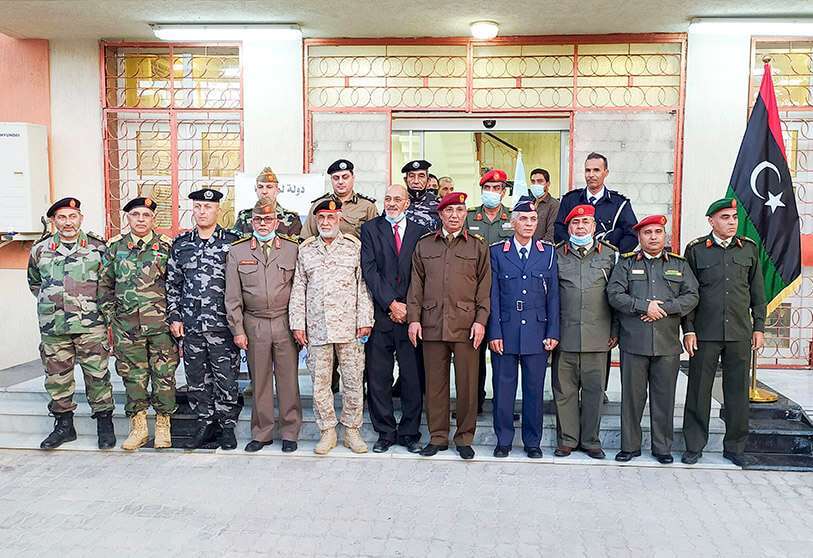
An ignored reality can become a future threat. Considering Libya's decline in a decade and given its present situation, it can be predicted that the path towards stability and the achievement of a strengthened regime is far from materialising. The clash of strategic interests, translated into the interference of external powers supporting one side or the other, is preventing an agreement from being reached on the success of a democratic transition.
A country whose strength lies in its hydrocarbon wealth faces serious threats and challenges at home that prevent stability from exploiting its full potential. In this sense, the confrontations between the LNA and the GNA keep the country divided. The competition for political power includes actors that encourage violence, such as ISIS, with the aim of expanding its influencia through terror and insecurity. A direct consequence of this is the existence of a human trafficking network, a fact that to this day does not cease and puts from manifiesto the need to adopt a security apparatus capable of redirecting the current trend.
Libya represents a scenario full of complexities and uncertainty that does not leave the European Union indifferent, particularly border countries like Italy and Spain, both of which are dependent on its resources. Insecurity and lack of stability are the result of the aforementioned threats, which become their own, both directly and indirectly. For this reason, efforts should be made to avoid further friction through dialogue and cooperation, both of which are key to the positive development of conflicto.
Prepared by the Middle East and North Africa analysis team (María Muñoz, Valeria Nadal, Javier Ochoa, Nereida Pérez and Jimena Puga)

